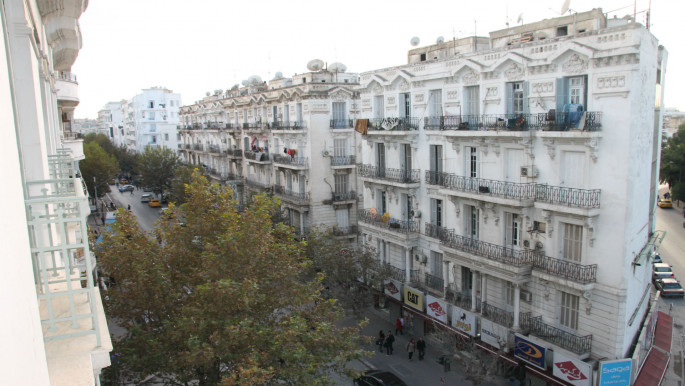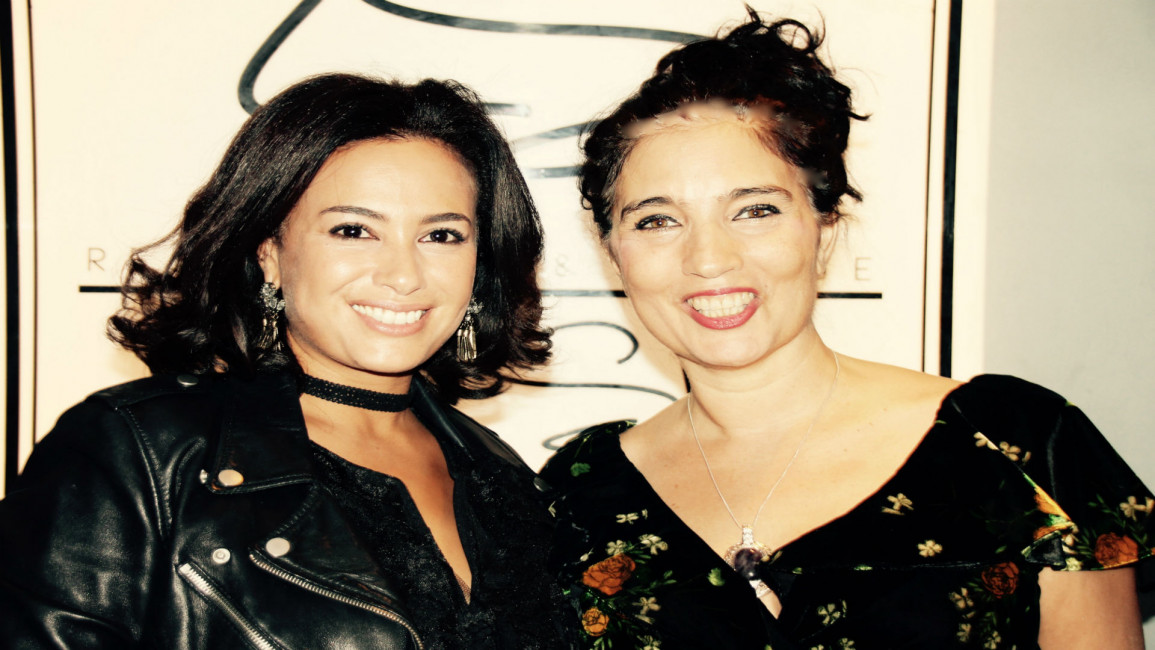
The Carthage Film Festival on very little sleep
Back in Tunis after 22 years away, the 50th anniversary of the Carthage Film Festival continues to be a revelation.
Despite the colonial Cartesian logic of grand boulevards and streetcar lines, I discover, the spiritual topography of Tunis is more like the souk and the sand dunes- as unpredictable as the wind.
Attempts to make things stick, stay tied down or arranged are futile – you must just grab what’s in the air and fly with it.
After another sleepless night next to the all night disco, I turn to Facebook for relief, joking about the non-stop drum machines as best I can and hoping for sheer exhaustion to kick in and offer some respite.
A young festival organizer who has friended me on Facebook replies ominously that if I don’t like it here she can put me out of my misery by quickly arranging a return flight to Canada.
There is nothing humourous in her tone, as if the ghost of Ben Ali lay down with Mark Zuckerberg, went out for a night on the town, and returned with an angry hangover. Her comment is “liked” by the woman in charge of foreign press.
I send her a friendly message, telling her to give me a call so we can meet for coffee and I inquire about the NGO for human rights and democracy where her profile says she is employed. I hear nothing more.
I turn up at the second floor office of the Hotel Africa to plead my middle-aged, just had a root canal, and travelled 8000 kilometres to be here, sleepless because of the diabolical non-stop disco case.
En route, in the souk meets cinephile supermarket that the lobby of the Hotel Africa has become, mainly full of male film makers and assorted cronies pressing the flesh, I meet a Middle Eastern film maker acquaintance.
 |
|
| Streetcar lines cut through grand boulevards in Tunis [Hadani Ditmars] |
He approaches me angrily about what has now become “l’affaire facebook” and berates me for having embarrassed the festival by posting a sardonic lament about the all night disco on my wall, which has apparently now been read and discussed by the entire population of Tunis.
He distances himself from me for the rest of the festival, for fear of guilt by association.
Meanwhile the taxi drivers have gone on strike, French special forces conduct military operations against IS near Tunisia’s southern border with Libya, where a barrier has been erected since last spring after violent attacks on Tunisian soil, and news of the ongoing assault against IS in Mosul filters through the festival chatter whenever a functioning internet line can be found.
At the second floor festival office I meet my new Facebook friend in person and we have a cordial chat.
I tell her I know how difficult the situation must be here, trying to arrange a festival with 500 guests. Soon I am introduced to a series of young Tunisian organizers who all promise to make something happen soon.
The first two days of the festival are dedicated to celebrating 50 years of cinematic highlights.
Sadly I am too exhausted to make the seminar on archives run by the intrepid Tunisian filmmaker and cinephile Mohamed Challouf who has dedicated years to the restoration of classics from the Arab and African world.
But I manage to attend the screening of his impressive documentary A l'ombre du baobab about the origins of the Carthage Festival and its Tunisian founder Tahar Chériaa, a pioneer of African cinema and champion of independent distribution who was jailed in the 1970s for daring to stand up to Western cinematic monopolies.
There is a nostalgic sense of pan-Africanism throughout the film that lingers in the lobby afterwards as I chat and pose for chummy photos with the son of Sembene Ousmane (the legendary Senegalese filmmaker and writer), the son of Egyptian filmmaker Tewfik Salah, whose fathers appear in the film, as well as the son of Chériaa himself.
 |
I wonder what has become of this pan-Africanist cinema engage ideal, especially in Tunisia, one of the continent’s cinematic centres |  |
I wonder what has become of this pan-Africanist cinema engage ideal, especially in Tunisia, one of the continent’s cinematic centres, now up against the excesses of the commercial, star driven Egyptian film industry, Saudi-backed satellite channels, and telenovela style soap operas.
I recall that in the midst of the opening night red carpet madness, through the buzz of paparazzi chasing Egyptian and Tunisian starlets rendered Barbie doll like by enthusiastic plastic surgeons, someone on the sidelines yelled out Vive l’Afrique!
But their voice was soon drowned out by screaming fans and general chaos. During my insomniac disco nights in Tunis, I listen to Bob Marley’s Africa Unite to try and keep the noise at bay.
I dine at the Hotel Africa with some lovely filmmakers from Burkina Fasso who help me charge my mobile phone/ lifeline and suggest I join them at the historic Hotel Majestic in the centre of Tunis.
Having heard nothing from the festival organizers, I call the hotel myself and they tell me there is a free room.
I head back to the second floor office and after some more rigmarole I meet a woman who seems to be in charge and manages to book my room. I am most grateful, I tell her. “My grandfather was a bayk,” she says, only half joking, “I can make things happen.”
 |
|
| Hotel Majestic overlooks one of Tunis' colonial boulevards [Hadani Ditmars] |
Later at the nightly festival after party, held in a giant white tent next to the palais du congress, I dance with a young Congolese film maker who is presenting a film called NGO – Nothing Going On - a dark comedy about some enterprising Africans who create a fake NGO to get American funding.
Highlights include a scene where they pay their friends to dress down and tell sob stories about their vies de misère when an American NGO staffer comes to investigate.
Over glasses of Tunisian beer, jury head Abderrahmane Sissako of Timbuktu fame introduces me to the daughter of Habib Bourguiba, the “father” of independent Tunisia.
I chat with various Tunisian filmmakers, actors and festival organizers who present multiple narratives about the state of things here. There are many different scenarios to choose from – several screenplays unfolding simultaneously.
One is a kind of Tunisian Three Days of the Condor that has the government hand in glove with the Islamists to control the population and ensure an economic monopoly.
Another is a video produced by the Ministry of Tourism featuring cheerful young fully employed Tunisians, holding jasmine flowers and enjoying the fruits of the Revolution in a place where there is no economic crisis, no terrorist threat and no state of emergency.
Whatever the scenario, one truism remains: Tunisians like to party.
Bathed in purple light, everyone dances together under the giant white tent, mainly to American rap music, but gyrating to the same pulsating rhythms. Le panafricanisme vive dans le discotheque!
Read Hadani's highlights of the Carthage Film Festival's opening night here.
Follow Hadani Ditmars on Twitter: @HadaniDitmars





 Follow the Middle East's top stories in English at The New Arab on Google News
Follow the Middle East's top stories in English at The New Arab on Google News


